Prime Minister Narendra Modi declared India’s readiness to lead the global telecom landscape, announcing the country’s capacity to deliver an entire device—from chip to phone—made in India. Modi made this announcement while inaugurating the International Telecommunication Union (ITU) World Telecommunication Standardization Assembly (WTSA) 2024, alongside the 8th edition of the India Mobile Congress (IMC) in New Delhi.
Speaking to a gathering of over 3,000 global industry leaders, policymakers, and technology experts, Modi emphasized the importance of global collaboration in shaping the future of telecom standards. “From chip to a complete phone, we are getting ready to deliver an entire device made in India. Two years ago, we launched 5G, and today India is the world’s biggest 5G market. Now we are working for 6G. That is India’s speed,” the Prime Minister proudly declared, signaling the nation’s ambition to dominate the next wave of telecom technology.
Hosting both the ITU WTSA and IMC 2024 in India, for the first time in the Asia-Pacific, marks a significant milestone. WTSA is the governing conference for standardization work of the International Telecommunication Union, held every four years. This year’s assembly brings together leaders from about 190 countries, focusing on setting global standards for next-generation technologies like 6G, AI, IoT, cybersecurity, and more.
Modi praised the simultaneous hosting of WTSA and IMC, calling it an alignment of standards and services. “India’s mission is to connect the world and focus on progress. When local and global are connected, the entire world benefits,” he said. He also stressed the transformative role of telecom in bridging the digital divide in India, noting, “Telecom is more than just a connectivity medium in India—it is helping to fill the digital gap.”
The Prime Minister urged the international community to establish robust global rules and regulations to address cyber threats. “It is time to make dos and don’ts about digital tools and applications. To combat cyber threats, global rules and regulations are needed. WTSA members should think about how telecom networks can be made safe. Make standards secure, inclusive, and adaptable for future changes,” he advised, calling for discussions grounded in the principles of security, dignity, and equity.
Union Minister for Communications Jyotiraditya Scindia echoed Modi’s sentiments, emphasizing India’s leadership in the next generation of telecom innovation. “With our Bharat 6G Alliance, we hope to contribute at least 10% of patents to 6G standardization. India followed the world in 4G, marched with the world in 5G, but we shall lead the world in 6G,” Scindia remarked.
The India Mobile Congress 2024, running from October 15-18, showcases India’s innovation ecosystem with participation from over 400 exhibitors, around 900 startups, and representatives from 120 countries. Themed “The Future is Now,” the event highlights advancements in 5G, 6G, quantum computing, semiconductors, green tech, and more.
Doreen Bogdan-Martin, Secretary-General of ITU, commended India’s efforts to foster international collaboration in digital technology. “In the next 10 days, I believe we can strengthen the role of international collaborations. Let’s write a digital future that is secure and sustainable,” she stated.
As WTSA 2024 paves the way for future telecom standards, India’s hosting of both these landmark events underscores its rising stature as a global leader in digital technology, with PM Modi’s vision at the forefront: from chip to phone, a complete device made in India.













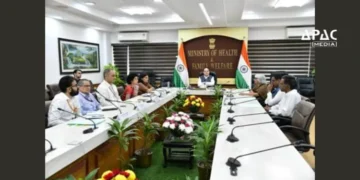
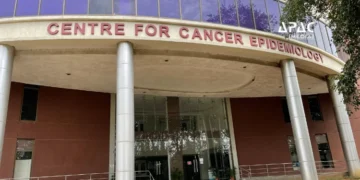

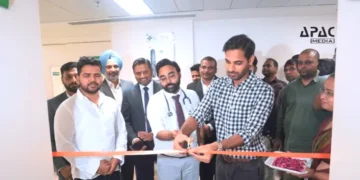




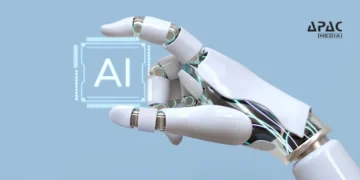
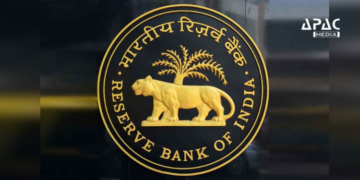
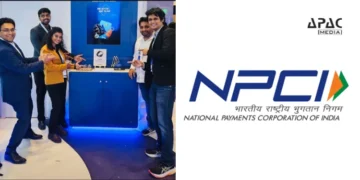


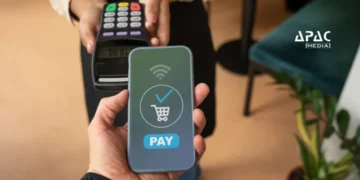
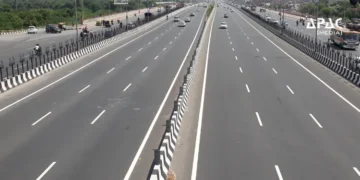
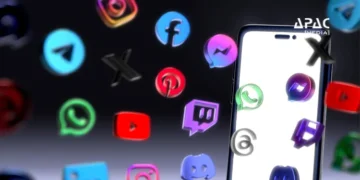
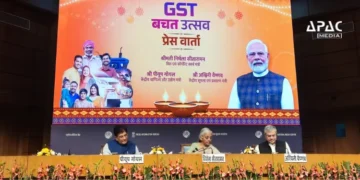
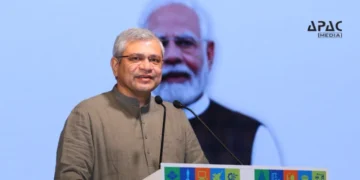
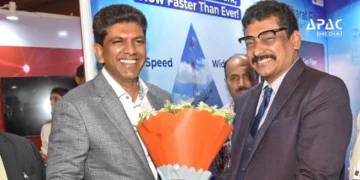
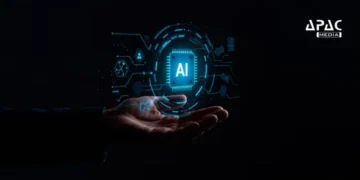















Discussion about this post